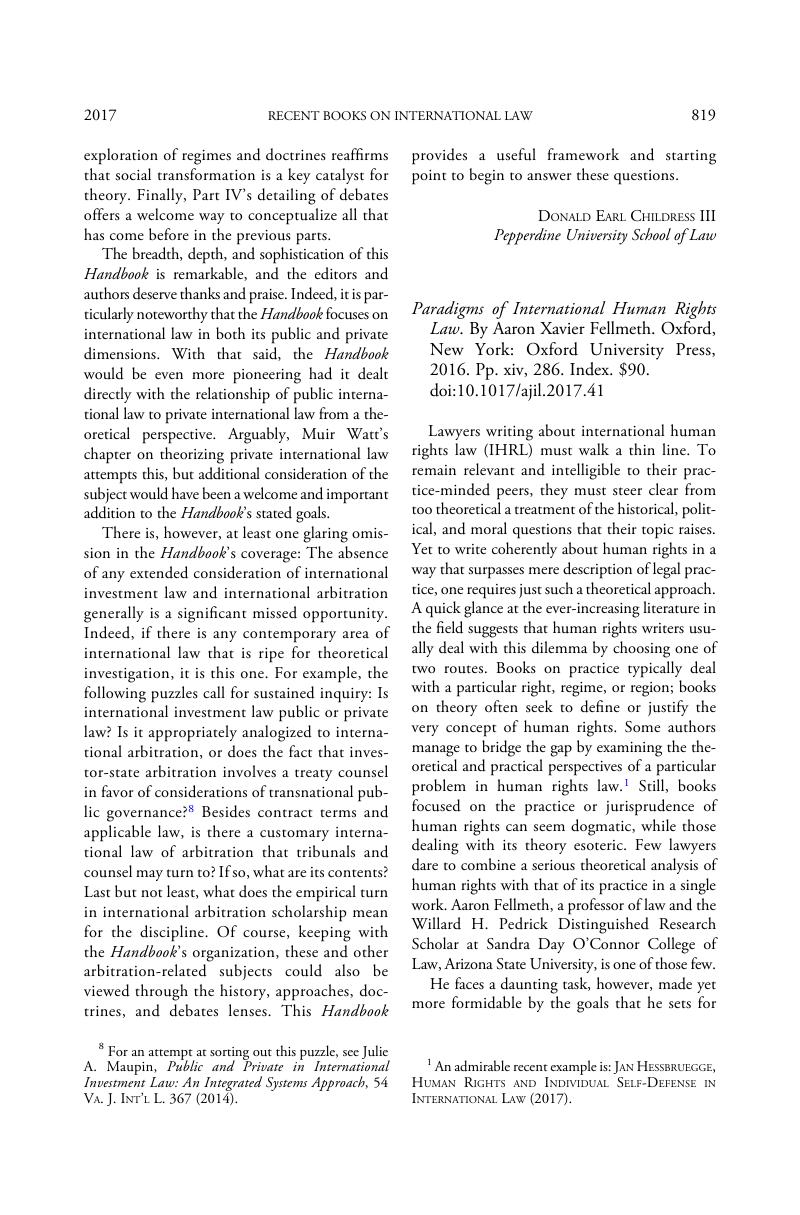No CrossRef data available.
Article contents
Paradigms of International Human Rights Law. By Aaron Xavier Fellmeth . Oxford, New York: Oxford University Press, 2016. Pp. xiv, 286. Index. $90.
Published online by Cambridge University Press: 18 September 2017
Abstract

- Type
- Book Reviews
- Information
- Copyright
- Copyright © 2017 by The American Society of International Law
References
1 An admirable recent example is: Jan Hessbruegge, Human Rights and Individual Self-Defense in International Law (2017).
2 See, e.g., Amitai Etzioni, A Communitarian Critique of Human Rights, in Handbook on Human Rights (Thomas Cushman ed., 2012).
3 See Religionsgemeinschaft der Zeugen Jehovas v. Austria, App. No. 40825/98, 48 Eur. H.R. Rep. 17 (2009), to which Fellmeth refers on pages 188–89.
4 See generally Henry Shue, Basic Rights: Subsistence, Affluence and U.S. Foreign Policy (2d ed. 1996).
5 See generally Thomas Pogge, World Poverty and Human Rights (2d ed. 2008).
6 This is often framed as the debate between the so-called “will” or “choice” theory, which insists on enforcement, and the “interest” or “benefit” theory, to whom enforcement is not an essential feature of rights. See, e.g., Matthew H. Kramer, N. E. Simmonds & Hillel Steiner, A Debate over Rights (2000).




